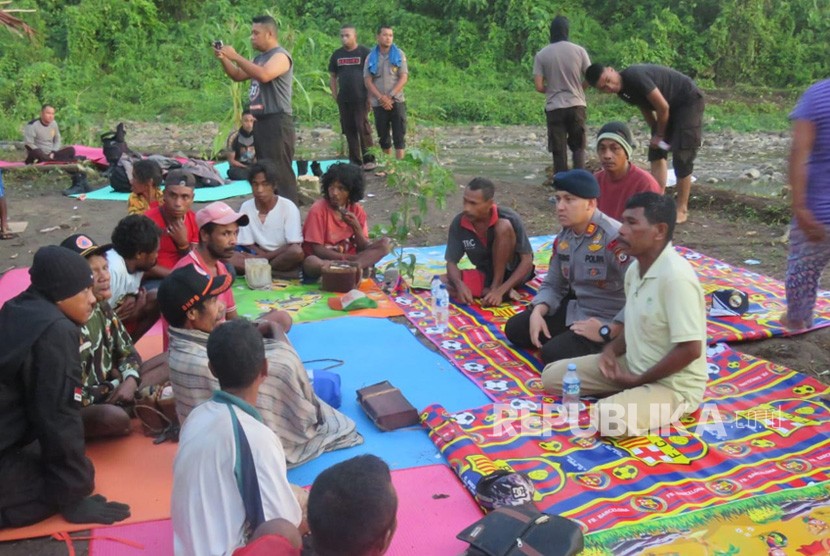REPUBLIKA.CO.ID, AMBON -- Maluku Provincial Administration has planned to build shelters for isolated indigenous Mausu Ane community. Famine that struck the people in a remote forest in Seram Island, located in Morkele mountain of Central Maluku district, had killed four.
"The shelter for Mausu Ane tribe affected by the famine has become one priority for immediate action. We have proposed this program to the Social Affairs Ministry," secretary of the Maluku social affairs office Frangky Taniwel said here on Thursday.
The plan had been discussed with the ministry's team, who have observed the condition of Mausu Ane tribe after the report on famine appeared on July 27.
"The shelter would become an alternative place which is accessible for all parties, on consideration that the tribe has used to stay deep in the remote area of the forest in Seram Island, which can only be reached by foot for two days and one night," he said.
According to Frangky, the Morokay village would be the closest village to Mausu Ane tribe homes.
Currently, the authority has built an integrated post as a central point to drop humanitarian aid and deliver them to the tribe.
The authority has also built 10 tents in the location as temporary shelters for 48 families of the tribe.
So far, the local government has distributed logistic assistance that comprised of one ton of rice, 190 mattresses, 270 blankets, 35 packages of toys, 60 packages for elderly, 45 packages for infants, 90 packages of dishes, cooking ware, and 45 tents.
"More aid have been dispatched by the military and police, the Maluku administration and a medical team has provided free services," he added.
The ministry would provide staple food for the tribe during the three-month emergency response. It would also rehabilitate their homes and build a social and health center.
Two elderly villagers and two children under the age of five had died because of lack of food.
The famine was the result of a harvest failure, as the crops, mainly tubers, were eaten by rats and wild boar. The tribes people have struggled to survive on leaves and rattan roots.



